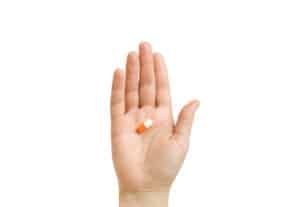
Adderall withdrawal symptoms occur when individuals dependent on the medication discontinue its use, with the duration of Adderall withdrawal varying from person to person.
While some people using this central nervous system stimulant may experience withdrawal symptoms from Adderall within five days, others may still encounter symptoms up to three weeks later.
Those who have been taking high doses of Adderall for an extended period should anticipate a longer duration of withdrawal symptoms after quitting Adderall.
Detoxing from Adderall can also be influenced by whether regular Adderall or Adderall XR was used. Due to the extended-release nature of Adderall XR, the body takes more time to detoxify from it, potentially leading to a prolonged withdrawal period.
Common Symptoms of Adderall Withdrawal

Adderall withdrawal can manifest in various ways. Here is a common Adderall withdrawal symptoms list:
- Extreme fatigue and exhaustion
- Intense cravings for Adderall
- Vivid or unpleasant dreams
- Mood swings and emotional instability
- Increased or decreased appetite
- Slowed movements and reflexes
- Persistent headaches
- Problems with thinking or concentration
- Unusually slow heart rate
- Irritability and restlessness
- drug cravings
- Jitteriness and nervousness
- Gastrointestinal issues
- suicidal thoughts
- Feelings of or severe depression
Symptoms of withdrawal from Adderall differ for each person and will include both mental and physical symptoms. While some individuals who are abusing Adderall may face significant challenges in functioning normally and fulfilling their responsibilities at home, school, or work during the initial withdrawal phase, others may experience milder symptoms or even none at all.
Fatigue
Adderall withdrawal fatigue is one of the common withdrawal symptoms for people with this form of drug abuse. As the body adjusts to the absence of the stimulant medication, energy levels may decline, leading to feelings of tiredness and exhaustion — this is sometimes called an Adderall crash.
The fatigue experienced during Adderall withdrawal can vary in intensity and duration. Some people may only experience mild fatigue, while others may feel severely depleted of energy. The extent of fatigue can be influenced by factors such as the individual’s overall health, the duration and dosage of Adderall use, and their unique physiological response to withdrawal.
Managing fatigue during Adderall withdrawal can be challenging, but there are strategies that can help alleviate symptoms:
- Prioritize rest and sleep: Ensure that you are getting enough restorative sleep during the withdrawal period. Establishing a consistent sleep schedule and creating a comfortable sleep environment can promote better sleep quality.
- Practice relaxation techniques: Engage in relaxation techniques like deep breathing exercises, meditation, or yoga to help reduce stress and promote relaxation. These practices can help alleviate fatigue and enhance overall well-being.
- Maintain a balanced diet: Consuming a nutritious diet can provide essential nutrients and support overall energy levels. Focus on incorporating foods that provide sustained energy, such as whole grains, lean proteins, fruits, and vegetables.
- Stay hydrated: Dehydration can contribute to feelings of fatigue. Ensure you are drinking enough water throughout the day to maintain hydration and support optimal bodily function.
- Engage in gentle physical activity: While excessive exertion may worsen fatigue, engaging in light exercises such as walking or gentle stretching can help boost energy levels and improve overall well-being.
- Seek support: Reach out to friends, family, or a support group to gain emotional support during this challenging time. Connecting with others who have lived experience of Adderall withdrawal can provide valuable insights and encouragement.
It is advisable to consult with a healthcare professional or addiction specialist for personalized guidance and support during Adderall withdrawal. They can provide additional strategies and resources to manage fatigue and other withdrawal symptoms effectively.
Adderall Withdrawal Timeline
Here is a typical Adderall withdrawal symptoms timeline:
- Within 6 to 36 hours: The first signs of withdrawal may emerge shortly after the last dose. Many individuals taking Adderall who suddenly stop experience a crash, characterized by intense depression and fatigue, during this time.
- Days 3 to 5: Symptoms tend to escalate during the initial week of withdrawal. Expect withdrawal symptoms such as intense feelings of irritability, depression, and fatigue are common. Some individuals may also encounter headaches and nightmares. This period typically represents the peak of withdrawal intensity.
- Days 5 to 7: Stimulant withdrawal symptoms begin to subside after approximately five days. While individuals may still experience moodiness and difficulties functioning socially, they generally start feeling better during this phase. Minor psychological symptoms like mild depression may persist but are significantly less severe.
- Weeks 3 to 4: In some cases, individuals have reported lingering effects of Adderall withdrawal even weeks after their last dose. This can occur among those with high tolerance levels who have been using the drug for an extended period, typically exceeding a year.
How Long Does Adderall Withdrawal Last?
The length of Adderall withdrawal varies individually, with some individuals experiencing symptom resolution within as little as five days, while others may endure symptoms for three weeks or longer.
Note: Those who have a severe addiction and consume higher doses more frequently or for a sustained period should expect a longer-lasting withdrawal experience.
Adderall Detox: Treatment for Adderall Withdrawal
Detoxification, or detox, is an essential part of addressing Adderall withdrawal. It involves the process of eliminating the drug from the body and managing the associated withdrawal symptoms. Detoxification from Adderall is typically conducted under medical supervision to streamline the process and provide the necessary support.
During detox, healthcare professionals may employ various strategies to alleviate withdrawal symptoms and promote comfort. This can include the use of medications to manage specific symptoms like depression or fatigue. Additionally, supportive care and counseling may be provided to address the psychological and emotional aspects of withdrawal.
Adderall detox commonly employs a tapering-down approach to minimize uncomfortable withdrawal symptoms. This method involves gradually reducing the individual’s doses over a period of time. By slowly decreasing the dosage, the severity of withdrawal symptoms is minimized, allowing for a more manageable and comfortable detoxification process.
Regrettably, there are currently no specific medications recommended for the treatment of amphetamine withdrawal. That said, there are certain approaches that may help reduce discomfort during detox. Some options to discuss with your healthcare provider include:
- Anti-anxiety medications: While these drugs are generally not recommended for long-term use, they may provide temporary relief during the initial days of Adderall withdrawal. Your doctor may consider prescribing a short-term, long-acting benzodiazepine like clonazepam (Klonopin) if you are experiencing intense irritability, agitation, or aggression.
- OTC pain relievers: If you are dealing with severe headaches or body aches, OTC painkillers such as aspirin, acetaminophen (Tylenol), ibuprofen (Advil), or Excedrin may offer some relief.
- Sleep aids: If you are struggling with sleep disturbances, discussing prescription sleep aids like Ambien or OTC antihistamines such as Benadryl with your doctor may be helpful.
- Antidepressants: While they are not proven to reduce acute withdrawal symptoms, starting antidepressant medication in advance might help in preventing lingering depression after withdrawal.
How Long Does It Take to Detox from Adderall?
The withdrawal process for Adderall may last around one to two weeks. However, it’s important to note that this timeline is a general estimate, and individual experiences may differ.
Factors that can influence the duration of Adderall detox include the individual’s overall health, the dosage and frequency of Adderall use, the presence of any underlying medical or mental health conditions, and the specific detox approach employed.
Detoxing from Adderall should be carried out under the supervision of medical professionals who can provide appropriate care and support throughout the process. They can tailor the detox program to meet the individual’s specific needs and ensure a safe and successful detoxification from Adderall.

Get Help for Adderall Addiction at Renaissance Recovery
Renaissance Recovery’s treatment center in Southern California specializes in outpatient treatment for Adderall abuse. The following while remaining anchored to your responsibilities:
- PHP (partial hospitalization program)
- IOP (intensive outpatient program)
- Dual diagnosis treatment program (for co-occurring disorders)
Our holistic and evidence-based interventions include medication-assisted treatment, group counseling, individual counseling, psychotherapy – CBT or DBT – family therapy, and holistic therapies for a whole-body approach to substance abuse recovery.
After completing your Adderall addiction treatment program, you can transition to a less intensive form of care or move directly into sober living addiction center in Southern California. We provide an aftercare plan that includes coping techniques and relapse prevention strategies to support your ongoing recovery from addiction to prescription drugs.
Contact our admissions team today at 866.330.9449 to take the first crucial step to lasting recovery from Adderall addiction.









